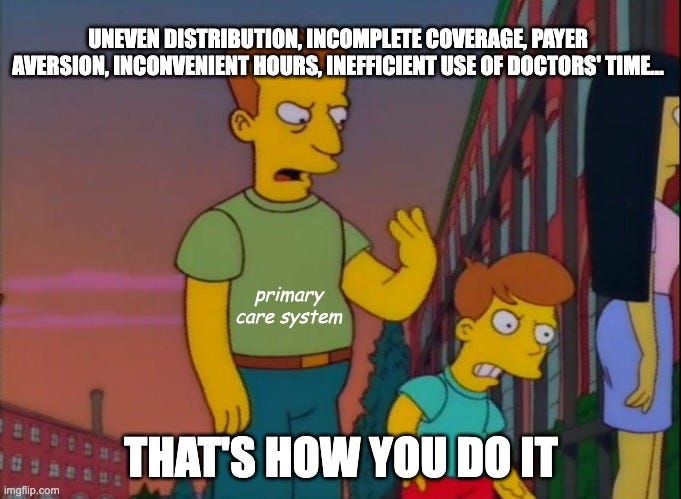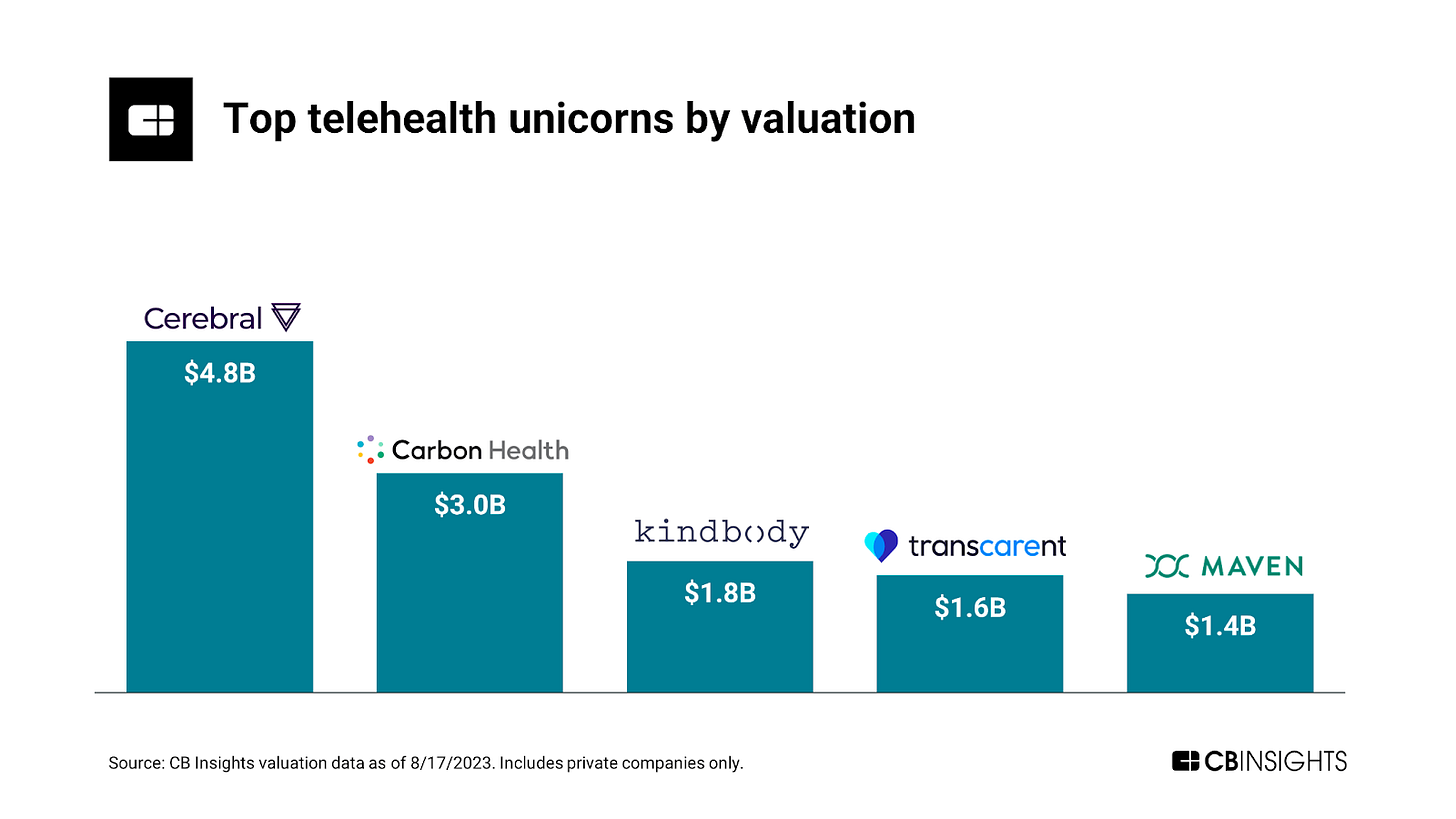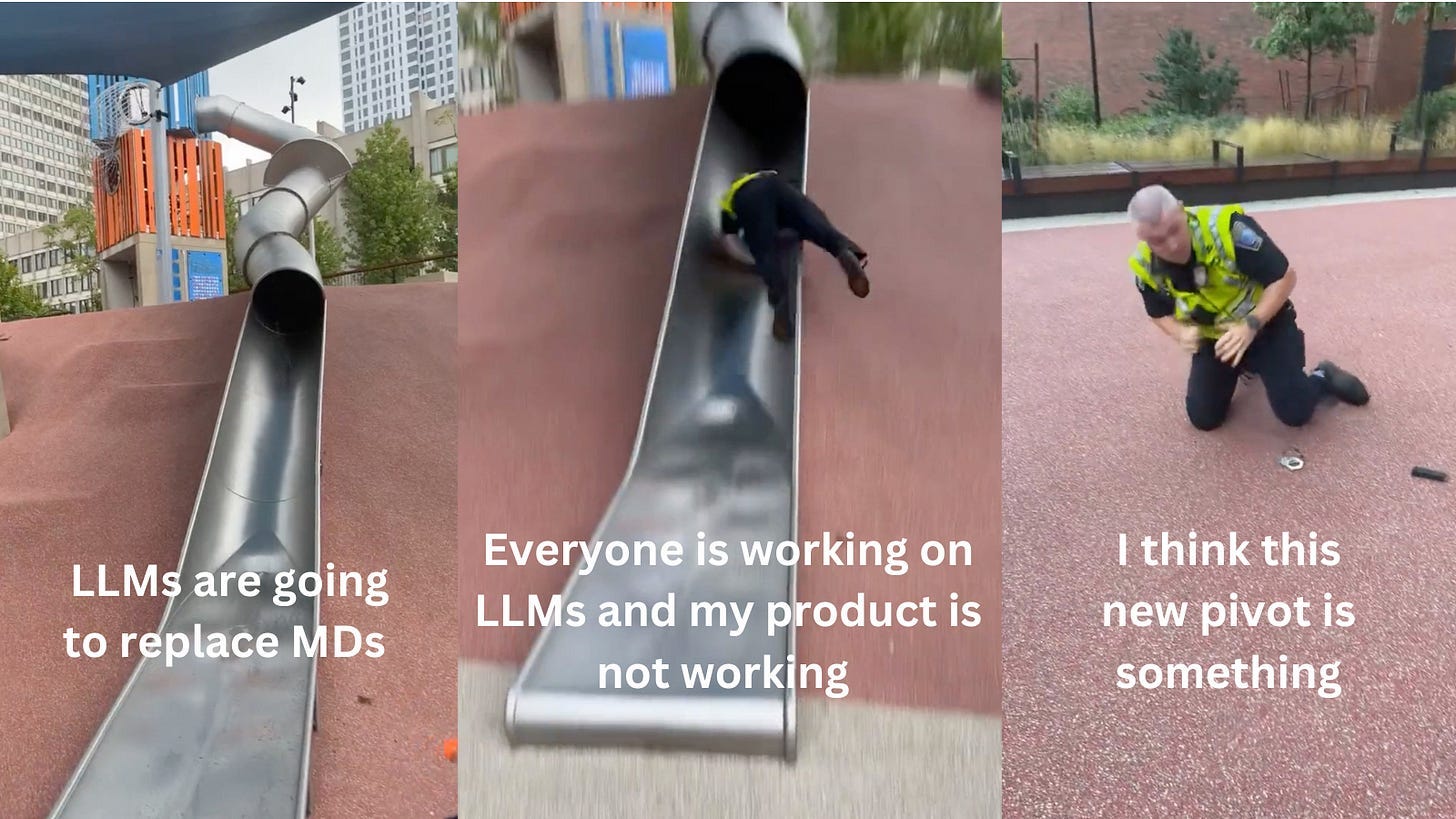#29 Healthcare Pickles 🥒
Also: political potatoes, telehealth unicorns, & commemorating the ghosts of the past.
Morning healthcare aficionados. Today’s newsletter is 500 words-long, or a 2-minute read.
Think about it 💡
🥒 The shortage of primary care physicians in the U.S. is leaving patients in a bit of a healthcare pickle. Doctors are hanging up their stethoscopes or switching to fancy concierge services, leaving patients looking for new providers. The percentage of primary care doctors is dwindling fast, now down to a measly 25%, while about 100 million Americans are stuck in a healthcare desert. Docs are feeling the love about as much as yesterday’s leftovers, with heavier workloads and less support staff to boot. While there are some attempts to fill the gap with urgent care and retail clinics, it's time we start throwing some cash into primary care, beef up those reimbursement rates, and maybe even toss in some med school debt forgiveness.
🥔 The U.S. fentanyl crisis has turned into quite the political hot potato. There may have been a time when the opioid epidemic could bring Republicans and Democrats together, but now it's causing more division than a math test. The White House is banging the drum, urging House Republicans to get their act together and address this fentanyl crisis pronto. Synthetic fentanyl and its deadly cocktail with other drugs are becoming an ever-growing menace, while a significant chunk of the population is grappling with the harsh reality of addiction and overdose fears. The spotlight has shifted towards curbing the drug's supply, setting off fiery debates about border security, international relations, and law enforcement. The urgency of the fentanyl crisis serves as a reminder of the need for swift and bipartisan solutions to save lives.
Unicorn valuation 🦄
💰 In 2021 and 2022, the telehealth industry experienced a remarkable surge in funding, workforce expansion, and valuations. While some companies like Transcarent saw their valuations skyrocket, others, notably Amwell and Teladoc, faced market cap declines. As the telehealth market recalibrates, a critical focus has shifted to workforce efficiency, particularly in terms of valuation per employee.
🐺 Cerebral leads the pack with a valuation of $4.8B, followed closely by Carbon Health at $3B, Kindbody at $1.8B, Transcarent at $1.6B, and Maven at $1.4B.
Neat News 🗞️
🔬 Carenostics, an AI startup targeting undiagnosed and undertreated chronic diseases, raised $5 million in seed funding. Neat.
🇬🇧 London-based healthtech Jude bagged €3.9 million to improve the lives of people with bladder problems. Super neat.
💸 Pumpspotting secured $2.2 million in funding to advance breastfeeding support in the workplace and beyond. Ultra neat.
Clean Content 🧼
🚀 How big tech uses AI’s might to turbocharge cancer research.
🎒 Evan Brociner explains how to create LLM products in healthcare that perform well over the long term. Great topic, even greater memes.
🏦 Andreessen Horowitz & co poured $200 million into startup Health IQ - now it’s bankrupt. Oh oh.
This is what you came for 🍑
👻 Grab your ectoplasmic detectors and mark your calendars, because September 30 is National Ghost Hunting Day. The perfect opportunity to hunt down all the elusive specters of the past. Ghosting - or the delightful ability to fade out of someone's life - is a common trend in the dating world. As it turns out, some 29% of singles have experienced the joy of having someone mysteriously evaporate from their amorous radar. Men and women are equally victims of the art of vanishing, with 29% of men and 30% of women having been ghostbusted.
See ya next time,
🎸 Big kudos to the awesome writers and journalists whose stories inspired the Hoagie this week. Elisabeth Rosenthal, Caitlin Owens, Evan Brociner, Tina Reed, Katie Jennings, the teams at Femtech Insider & CB Insights - you rock.




